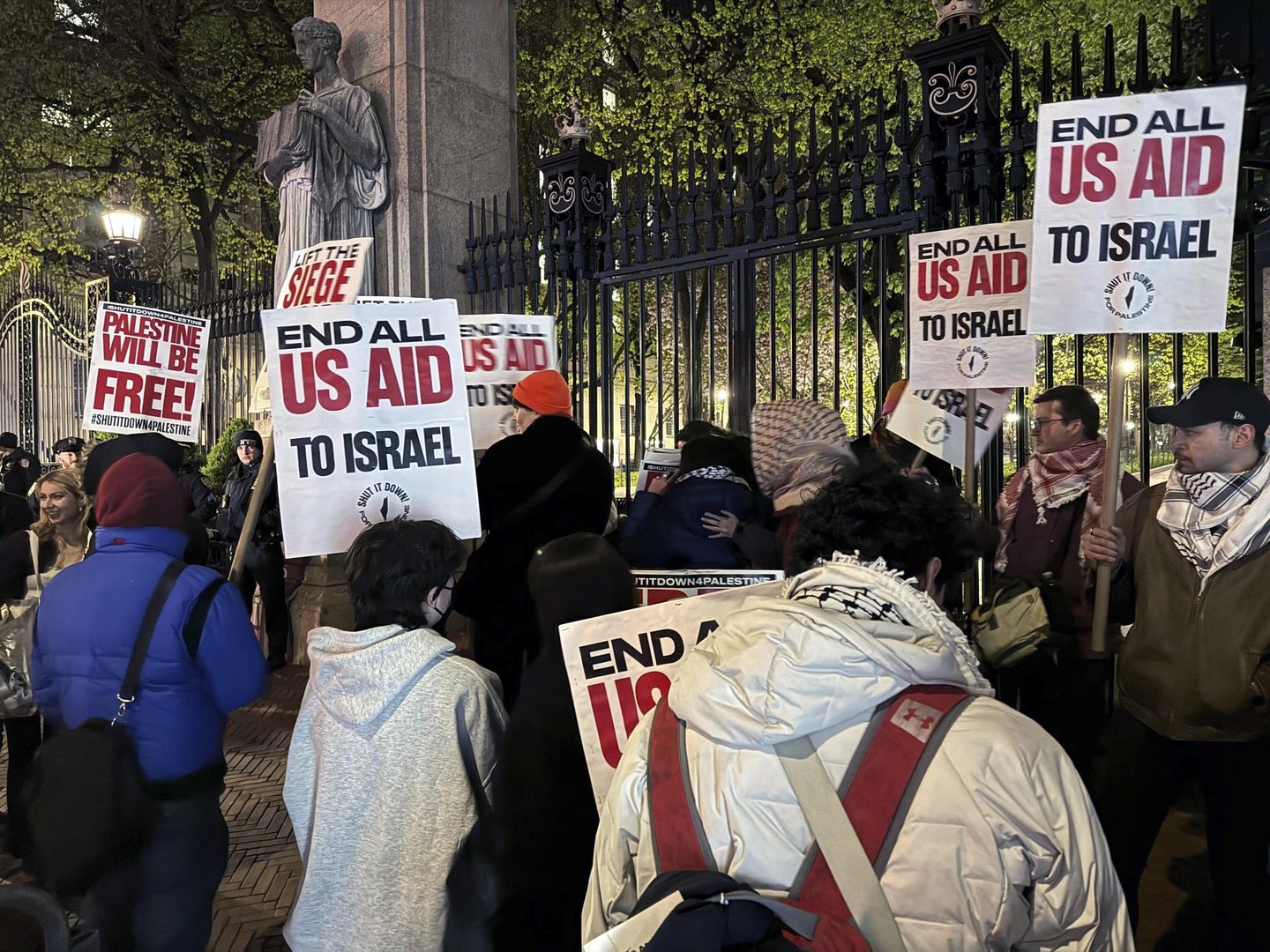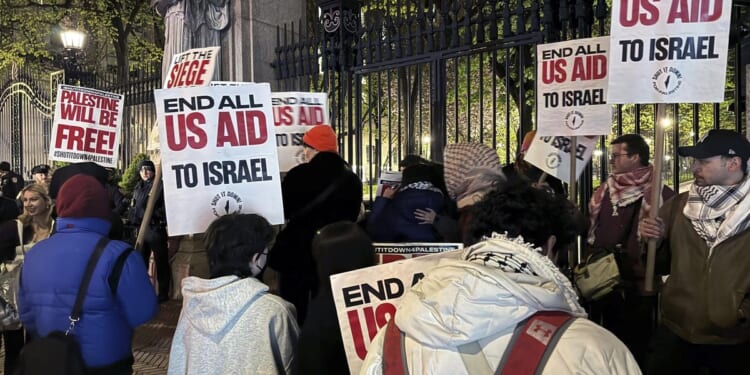
NEW YORK — Anti-Israel demonstrators who have shut down Columbia University insist they are not pro-Hamas but blame the Jewish State for the Middle East conflict that exploded with the Oct. 7 terrorist attack.
These student protesters, known as the “Gaza Solidarity Encampment,” have erected a tent village encampment on Columbia‘s south lawn. While saying they don’t support the Hamas terrorists, they often parrot its rhetoric.
“What they’re advocating for in the encampment is the Liberation of Palestine. And I think a lot of that comes from what Israel has done to Palestine, and the genocide that they’re committing there,” said Ruby, a freshman who isn’t living at the encampment but expressed solidarity with the cause.
She didn’t want to give her full name.
“I think tying in Hamas sort of misrepresents it because I don’t think people in the encampment are saying that they support Hamas. They are saying that they support the Liberation of Palestine,” she said.
It’s not only students rallying to the anti-Israel cause.
SEE ALSO: Rep. Omar cheers Columbia protesters for ‘bravery and courage’ after visiting anti-Israel encampment
Emile Benjamin, a professor at the Columbia film program, said there was an equivalency between the actions of Israel and Hamas.
As he strolled around the collection of tents, which were strewn with Palestinian flags and protest signs, she said Palestinians have the right to resist an occupier but that Hamas’ Oct. 7 terrorist attack on Israel was “brutal” and “condemnable.”
“But if we’re going to call that terrorism, which frankly I think we should, then how can we not call the Israeli war crimes that have happened for decades and decades, how can we not call that terrorism as well,” said Mr. Benjamin.
Anti-Israel protesters defend their actions saying that many Jewish students are part of their movement and were recently arrested by the New York Police Department when officers attempted to dismantle their encampment.
“More than 50 Jewish students were arrested alongside other students at this university. The university itself sic the NYPD on Jewish students. So this is a safety concern that concerns us all,” said one of the student protesters.
Jewish students at Columbia report being harassed and threatened and say they no longer feel safe on campus because of antisemitic demonstrators.
The protesters are part of Columbia University Apartheid Divest, a coalition of 116 student-run organizations that say they represent “thousands of Columbia students.”
Its website lists demands including:
• Divest all of Columbia‘s finances, including the endowment, from companies and institutions that profit from Israel.
• Sever academic ties with Israeli universities and all study-abroad programs, fellowships and research collaborations with Israeli academic institutions.
• Prohibit land grabs, whether by the university in Harlem or by Israel in the West Bank, and provide reparations for low-income Harlem residents.
• Defund Public Safety and disclose and sever all ties with the NYPD.
• Release a public statement calling for an immediate, permanent ceasefire in Gaza and denouncing the “ongoing genocidal campaign” by Israel.
• End the targeted repression of Palestinian students and their allies on and off campus.
The Columbia University encampment has been set up for more than a week, with the school giving the demonstrators several deadlines to decamp but then extending the deadline.
The turmoil sparked calls for the removal of the university‘s president, Minouche Shafik, but the Columbia University Board of Trustees on Thursday threw its support behind her praising her handling of the situation.
The board backed up Ms. Shafik hours after House Speaker Mike Johnson, Louisiana Republican, called for her resignation after visiting Jewish students on campus who described antisemitic threats and harassment from the protesters.
The university this week canceled in-person classes for the rest of the academic year because of the protests.
The anti-Israel protest encampments have now spread to more than 40 college campuses in the U.S. and Canada, including Harvard, Brown, Massachusetts Institute of Technology, George Washington, Northwestern and the University of California, Los Angeles.
“It’s been, quite frankly, dystopian,” said Ariva Rubin, a third-year student at Columbia who was among the roughly 50 Jewish students who met with Mr. Johnson.
She said she struggles to understand the protesters’ viewpoints, though she gets taunts or what she calls “shots” from demonstrators because she is Jewish.
“I believe that some of my friends are here in good faith, but a lot have succumbed to certain narratives that ultimately harm the larger geopolitical conflict and also the tension on campus,” she said.












